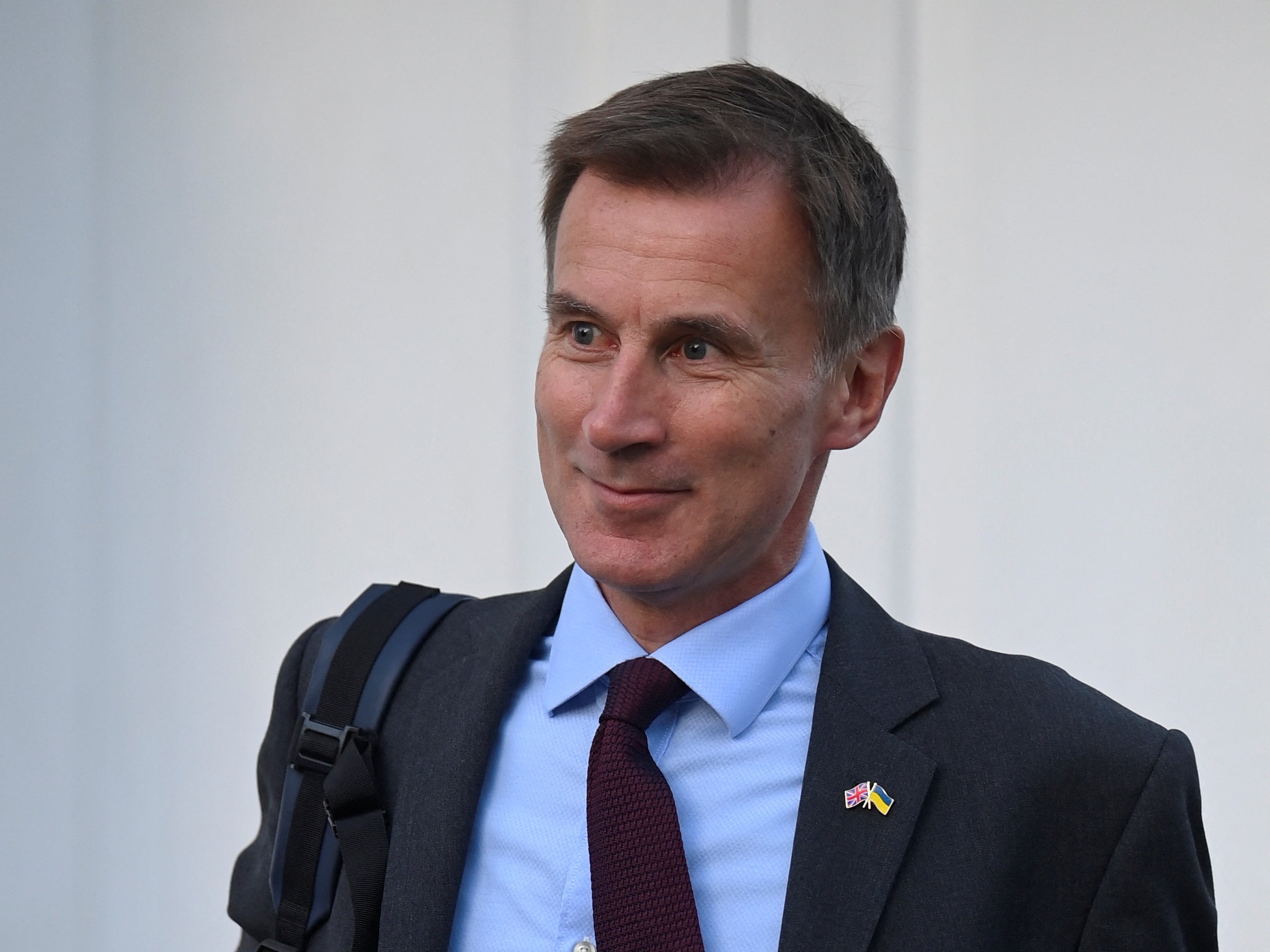Has Jeremy Hunt done enough to save us from recession?
There is no way of sugar-coating the harsh facts, writes Hamish McRae


Recession next year for the UK is now pretty much inevitable. There is no way of sugar-coating that harsh fact. It will be caused as much by the near certainty of a recession in the rest of the developed world as by the inept policies of this current government – but that is no comfort at all.
The only comfort we might take is that the downturn does not, on the evidence so far, look likely to be particularly severe in terms of job losses, though living standards will take a big hit.
Thinking of the UK first, Jeremy Hunt has done enough in his first four days as chancellor to cut the UK government’s borrowing costs to pretty much the same level as those of the US: the benchmark 10-year yield for each country is a bit over 4 per cent. The pound has steadied, and business economists have started to cut their forecasts for the peak in the Bank of England’s base rate, from 5 per cent or more to 4 per cent.
But there will still be a recession. The Ernst & Young ITEM forecast is that the UK will be in a shallow recession until next summer, with output falling by 0.3 per cent next year. That is somewhat worse than the IMF’s forecast last week, which was that the economy would grow by 0.3 per cent in 2022. Goldman Sachs thinks it will be worse still, forecasting a decline of 1 per cent next year.
But we have only got the tax side of Hunt’s plans, not the spending side, and these expectations may shift when the full figures (and the assessment of the Office for Budget Responsibility) are revealed on 31 October.
What will the coming recession feel like? It is worth asking, because I don’t think it will feel like previous recessions, where unemployment shot up but people who were in secure jobs managed all right. This will be different because it looks as though employment will remain reasonably strong. There will be some job losses, but the overall demand for labour will stay quite high. Back in August, the Bank of England thought unemployment would rise to over 6 per cent, but I’m not sure that is right.
The UK’s economy has several weaknesses, including and perhaps especially its relatively low productivity, but it is very good at creating jobs. It will take some time before the current record levels of unfilled vacancies are filled, and by then growth should have resumed.
The flip side of employment remaining strong will be that real pay will continue to be squeezed. It will certainly be squeezed through the winter, from the combination of higher energy prices and – for people who have to renegotiate a mortgage – higher interest rates. There are always winners and losers from a recession (a lot more of the latter) but this time the pain will be relatively evenly spread.
What is likely to make things better, or worse? Better is easy. Some sort of ceasefire in Ukraine would bring forward the decline in inflation and eventually see interest rates fall. Europe is adjusting swiftly to managing without Russian gas, so an improvement in the outlook is not dependent on Russia resuming the supply. The impact on the world economy would be more widespread, reducing one area of huge – and deeply troubling – uncertainty.
And worse? There are two top candidates. One is that there will be a deeper-than-expected US recession. American economists now overwhelmingly expect that there will be one. The Conference Board has a nifty economic model that signals there is a 96 per cent probability of that. So a recession is a done deal.
To keep up to speed with all the latest opinions and comment, sign up to our free weekly Voices Dispatches newsletter by clicking here
What is not clear is how deep or how long, and I don’t think we will have much feeling for that until the end of the year. If there is a really serious recession, you know the adage “When America catches a cold, Europe gets pneumonia.” But equally there is the “first in, first out” story, and we know from previous cycles that the US economy can recover fast.
The other concern is that the sudden move to higher interest rates will lead to some sort of wider meltdown. Because interest rates have been so low for so long, financial institutions have got used to ultra-cheap funding and are unprepared for the squeeze. In this case, the pressures on UK pension funds would be an early warning of wider stress. A couple of hedge funds, including Marshall Wace, have warned of this, and while one should always take what anyone in this high-risk sector says with the pinch of salt, they may be right.
We have all learnt a lot in the past few weeks. From a British perspective, it has been a period of humiliation, and politics apart, the best thing that can be said is that credible policies are now being put in place. But soon the focus will no longer be on the UK, but on the shape of the global downturn. Right now that does not look too deep, but there is no denying the fact that almost every successive forecast is worse than the one before.
There will be a turning point, but it is not yet in sight.
Join our commenting forum
Join thought-provoking conversations, follow other Independent readers and see their replies
Comments
Bookmark popover
Removed from bookmarks